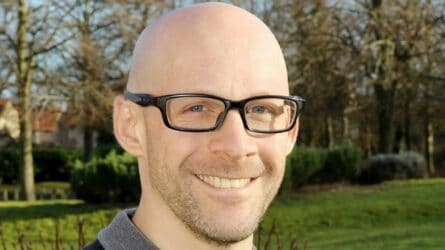Linley & Simpson Go the Extra 300 Miles for Martin House
Martin House partners Linley & Simpson aren’t afraid of a challenge when it comes to fundraising for their favourite cause. From tackling…
Children and young people who use Martin House often have very complex conditions, with many different clinicians involved in their care, and with complicated or changing symptoms to manage.
At Martin House we offer Advance Care Plans (ACPs) as a way of empowering a baby, child, young person and their family to help ensure they receive the best and right care for them at every stage.
An ACP is a holistic document, it’s a really good summary of everything that is important to a child and their family — not just their medical problems, but how best to care for them, advocating for their wishes in different scenarios, together with the opinion of professionals involved in their care.
When we work with a family to prepare an ACP, we often find it raises questions for them — what would end of life care look like? Where would they want to be? These are difficult conversations, but it gives families an opportunity to start exploring these issues to understand what they might want.
An ACP doesn’t necessarily mean making decisions in advance, it’s about supporting potential future decisions and discussions. Families have sometimes told me they’ve found the process of care planning to be more important, because having those conversations with professionals has helped them to think things through.
That’s an advantage of an ACP, you can involve all of the professionals you need to, you can help families be prepared for what a particular treatment or situation could entail, and they’ve been able to talk through these things when their child isn’t acutely unwell.
It means the family are not in a situation of making decisions from scratch when they are in an Emergency Department at 3am, when emotions are high, potentially sleep-deprived, and with doctors who don’t know them or their child.
On the flip side of that, for professionals, an ACP is a valuable tool. It helps them to really understand who this child or young person is, beyond a diagnosis and symptoms, to see what is normal for them. It shows them that the family has thought about what they might want, with the input of professionals who know their child.
An ACP can also be quite open, and say something like ‘please have open and honest discussions with the family or young person’. That can be just as useful for a professional because it can make it easier for them to have potentially difficult discussions with a family.
We’re palliative care professionals, and we can find some of these conversations difficult, so for a doctor who doesn’t know the family it empowers them to talk to them about the situation and potential treatment options, helping them to make informed choices.
As ACPs can cover more than the medical needs of a child or young person, they can also prompt professionals to think about holistic care — for example the spiritual needs of a child or their family — and it can be about care after death as well, like does the family want to come to the hospice?
An ACP isn’t a legal document, and it shouldn’t be restrictive. It’s a living document, which stays with the family and can be reviewed regularly depending on their needs.
Irrespective of any care plan, professionals must act in the best interests of the child, but a good care plan can help inform professionals of the situation and family wishes vital in determining this.
Families don’t have to have an ACP, but they should be offered it, and there is no right or wrong time to complete one. Like all of our care, it’s completely individual to each child and their family.
by Dr Ross Smith
Consultant in Paediatric Palliative Medicine

Martin House partners Linley & Simpson aren’t afraid of a challenge when it comes to fundraising for their favourite cause. From tackling…
As Father’s Day approaches, we acknowledge this can be a profoundly difficult time for many, especially for dads who have experienced the…
At Martin House, we are always touched by the incredible support we receive from our community. One such act of kindness has…